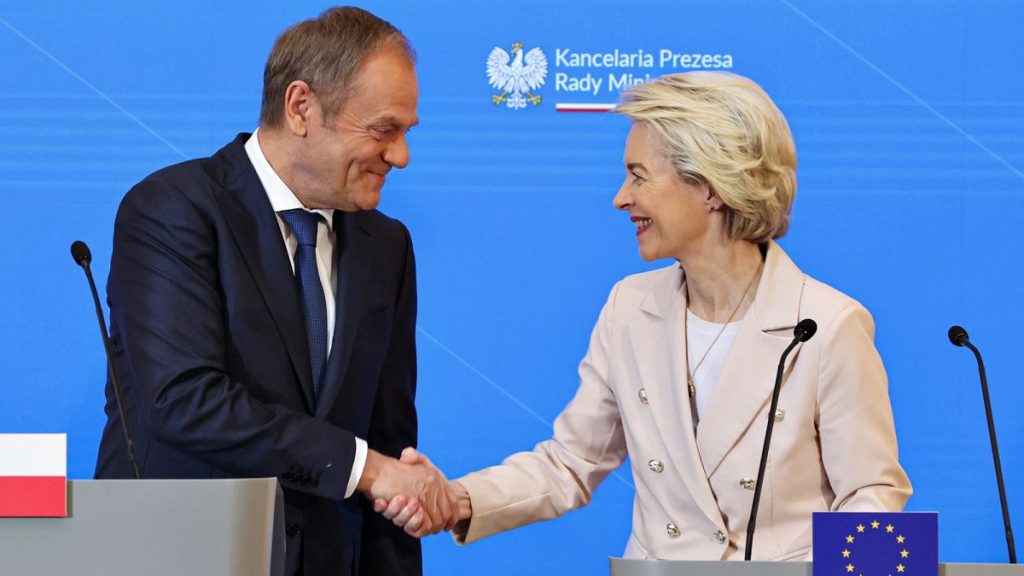The European Commission has announced the closure of the Article 7 procedure against Poland, which has been ongoing since 2017 due to the country’s systematic breaches of fundamental values and erosion of judicial independence. This decision, which still requires validation from member states, marks a significant step in the restoration of the rule of law in Poland. Prime Minister Donald Tusk’s government presented an “action plan” to address these issues, resulting in the unblocking of €137 billion in recovery and cohesion funds in February. The ultimate goal of the plan is to bring Article 7 to a close and improve Poland’s standing within the European Union.
Despite the progress made, none of the nine bills outlined in the action plan have been fully implemented, and the veto power of President Andrzej Duda poses a potential obstacle. However, the Commission believes that the current initiatives, such as the dismissal of unjustified legal proceedings against judges, have reduced the serious risks enough to warrant closing the Article 7 procedure. While the Commission acknowledges that work still needs to be done, they see the situation in Poland as evolving favorably, with the threat to the rule of law decreasing significantly.
The confrontation between Poland and the EU began when the Law and Justice party came to power in 2015 and introduced controversial judicial reforms that were deemed to threaten the rule of law by the Commission. The adoption of measures that politicized the judiciary led to the triggering of Article 7 in December 2017. Despite legal challenges and fines from the ECJ, Poland continued with its reforms until eventually, in June 2023, the reforms were struck down, leading to a wider reconciliation process initiated by Prime Minister Tusk. The decision to close the Article 7 procedure is seen as an opportunity for Poland to move past the years-long feud with Brussels and reestablish itself as a constructive member of the EU.
While the closure of the Article 7 procedure has been welcomed by many as a step towards reconciliation between Poland and the EU, some officials from the Law and Justice party have criticized the decision as politically motivated. They argue that the actions taken by Donald Tusk have not resulted in substantial changes and accuse the EU of attempting to undermine their party’s power. Despite these criticisms, observers see the closure of Article 7 as a necessary step in the ongoing process of improving relations between Poland and the EU. The weaknesses of the Article 7 procedure, which relies on the political will of member states and requires unanimous agreement, have been highlighted, raising questions about its effectiveness in upholding EU values across all member states.
In conclusion, the closure of the Article 7 procedure against Poland represents a significant milestone in the ongoing efforts to restore the rule of law and judicial independence in the country. The decision, while requiring validation from member states, is seen as a positive development in the relationship between Poland and the EU. Despite criticisms and challenges that remain, the progress made so far is viewed as a step in the right direction. The closure of Article 7 is seen as an opportunity for Poland to move past the confrontation with Brussels and reengage positively with the European Union. Ultimately, the decision reflects a broader effort to strengthen democratic principles and uphold EU values across all member states.















